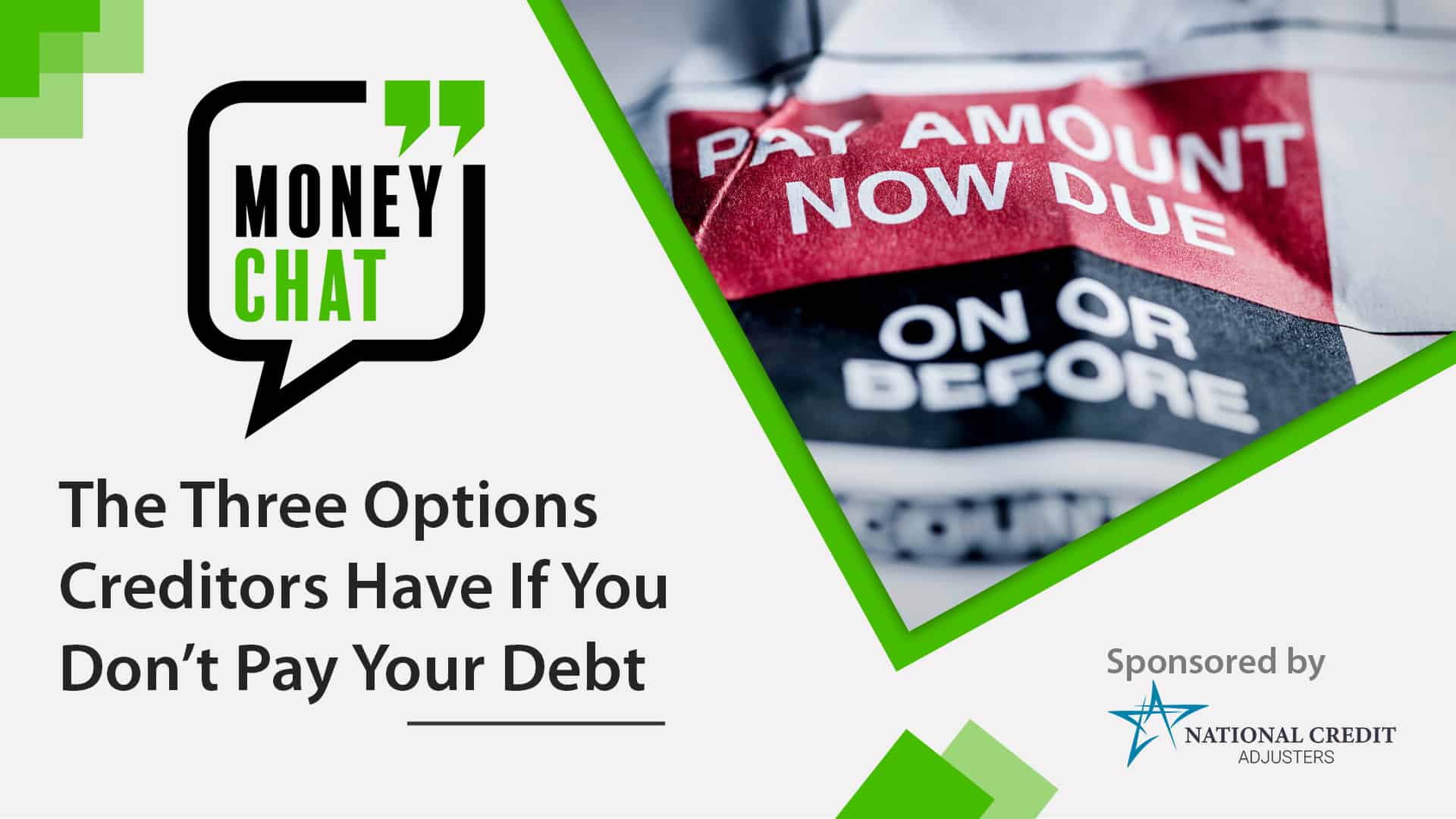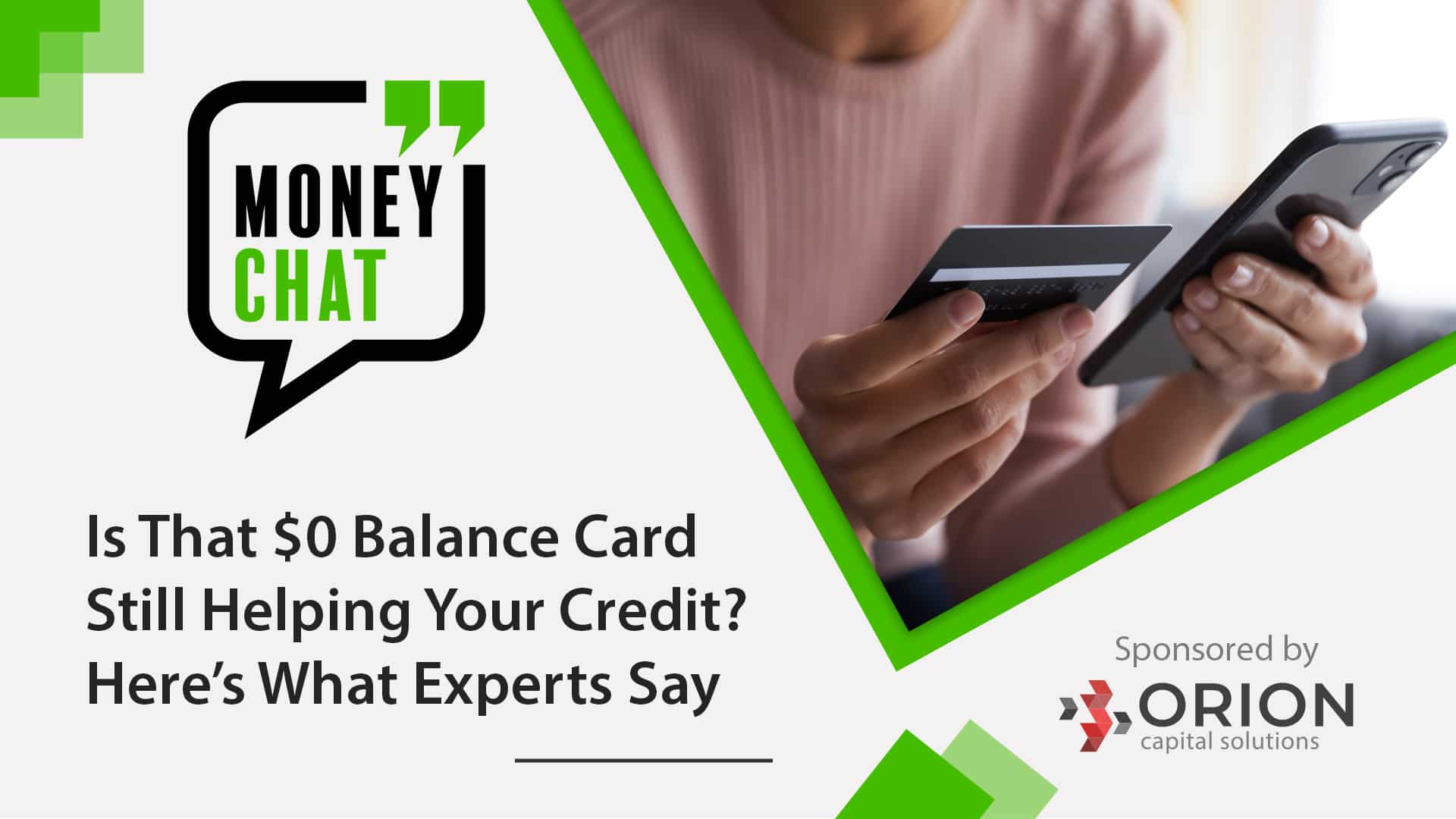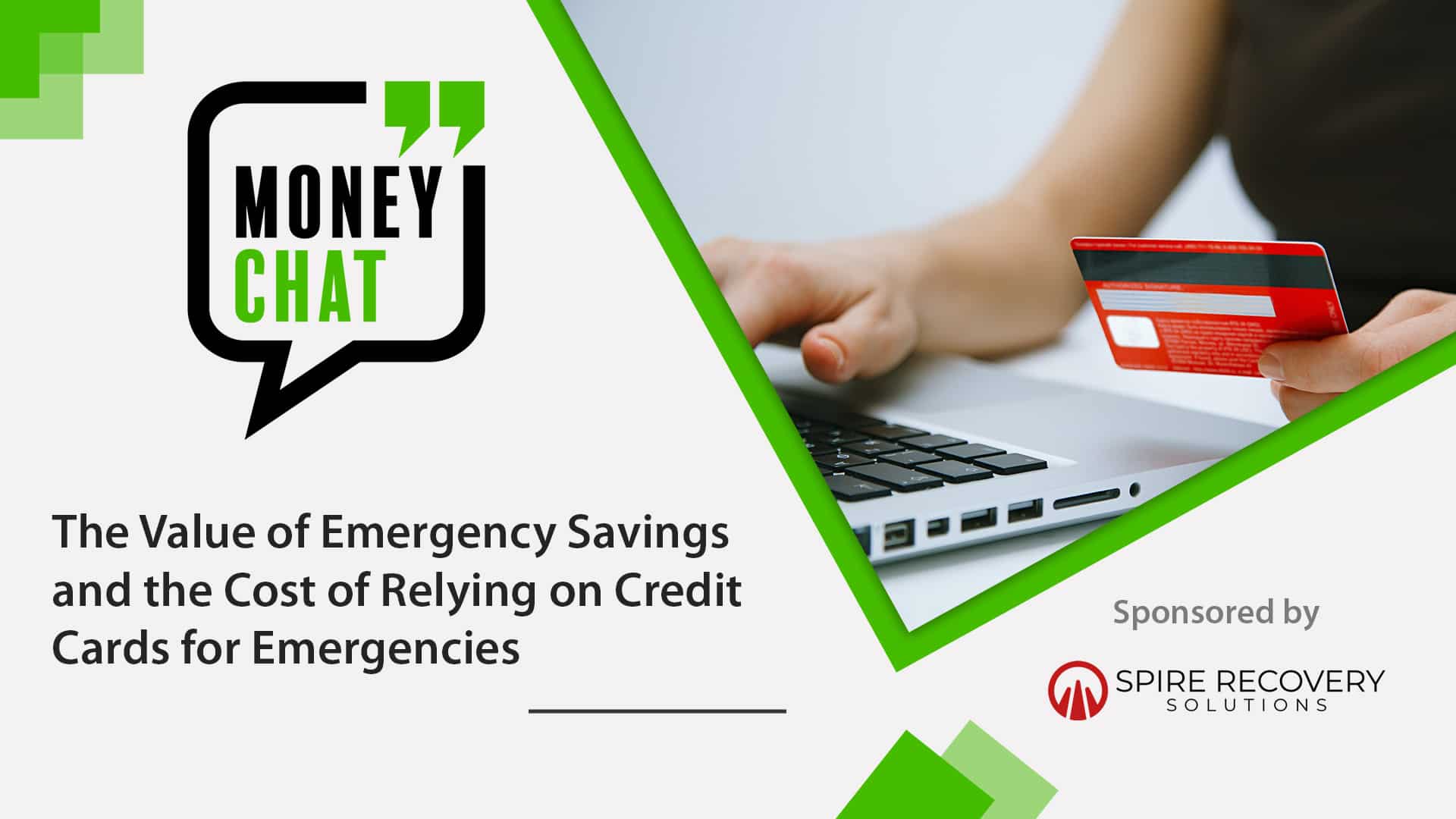
The Three Options Creditors Have If You Don’t Pay Your Debt
We’ve all been in various, sometimes precarious, financial situations throughout our lives. Unpaid electricity bills, overdue car payments, and student loans make up most of the typical Hollywood representation of overdue accounts, but what happens in real life if you can’t pay down your debt? There are typically just three avenues for a creditor to take should you not be able to make a payment.
The goal of this Money Chat is to help you understand exactly what happens behind the scenes when a creditor has to make a decision about unpaid accounts.
The Credit Cycle
Before you get to the repercussions of not paying down your account, it’s important to look at what the credit cycle is and when certain activities get triggered. There are 7 steps to the credit cycle and each one of them plays a role in how your accounts will be treated and what happens to any remaining balances.
For example, if you have historically poor credit due to several non-performing loans in the past, various protections will be put in place by any creditor extending credit on your behalf to ensure that even if you do not make payments, they can recoup some of the money in the future.
In an isolated case, creditors only begin exploring options once your account has hit the 4th stage of the credit cycle—delinquency. Delinquent accounts are accounts that have gone unpaid for 30 days or more. Once the account has been delinquent for 30 days, your interest rate will be raised to the “penalty rate” which can remain in effect indefinitely. At this point, creditors are left with no choice but to explore one of three options.
General Collections
In general, once an account is considered delinquent, it will be placed with a collections firm to recover all monies owed. While debt sales are very common and many creditors will choose to sell debt portfolios instead of collecting them internally, many have their own receivables department to collect upon your account or have affiliates who are considered “first-party” collection agencies working on their behalf.
If your account enters collections, either by the creditor or through a third party after your debt is sold, many actions can be taken to recover monies owed, and your credit score will most likely be in a constant downward spiral until your account is paid off. Almost every single account that is delinquent will go through some form of collection activity.
If your account is in the collections phase, the first step is to work with your creditor or the collection agency collecting on your account. In most cases, collection agencies are willing to set up payment arrangements that benefit both you and the agency, rather than go through any additional tedious collection strategies.
Litigation
The most intrusive collection activity is litigation. Lawsuits, and the collections firms that specialize in debt collection through litigation, are not the most common form of collections but are perhaps the most recognizable. Things like wage garnishments, repossessions, and foreclosures typically only can happen after a court order and are generally reserved for larger balance delinquent accounts.
It is important to note that lawsuits do not have to be filed specifically by the originating creditor. While creditors may opt to issue a lawsuit to recover your overdue account through various means, if your account is sold to a third party, they too may choose to pursue this path. Avoiding litigation should be every consumer’s goal when dealing with unpaid accounts. It is important to reach out to whoever owns your overdue accounts and work with them to set up a mutually beneficial payment plan.
Debt Sale
A common way originating creditors manage delinquent accounts is through debt sales. Once an account is delinquent for an additional 30-60 days, or up to 180 days past due in the case of credit cards, creditors can “charge-off” your account. A charge-off means the creditor will close your account and write off the debt you owe. Not only does this significantly impact your credit score, but it also pre-packages your unpaid account into portfolios for creditors to sell to third-party debt buyers (investors).
This action is the most common form of debt collection and all third-party collection activity is closely regulated by the Fair Debt Collection Practices Act (FDCPA). Once your account is packaged and sold to a secondary creditor, the originating creditor no longer controls the account and all future interactions by the consumer will be made through the new owner of the debt.
Explore Free Resources
To avoid any uncomfortable collection strategies, it is important for consumers to stay ahead of financial disasters. There are dozens of free, easily accessible financial education resources for consumers to explore to avoid uncertainty as they navigate debt. If you want to learn more about financial literacy or your rights as a consumer, please visit the Receivables Info Resources Page.
Creditors do not want any account to enter one of these three stages. Once an agreement is in place, creditors will work closely with consumers to ensure timely payments are made. Should your account enter one of these stages, reach out quickly to whoever currently owns your overdue account and negotiate a fair payment plan on your behalf.
Have an idea for a Money Chat topic?
We want to hear from you! If you have a suggestion for a future Money Chat topic, please email us at [email protected].
The information contained in this article is meant to serve as general guidance for consumers and not meant to serve as comprehensive financial advice. For questions about your individual circumstance, finances, or accounts, please contact your creditor(s) and/or financial advisor directly.
Thank you to our Sponsor National Credit Adjusters, LLC
Founded in 2002, National Credit Adjusters specializes in purchasing and servicing distressed, non-performing, and delinquent accounts receivables. NCA’s primary area of acquisition is consumer installment and online lending. NCA also has extensive experience in credit card, lease-to-own, consumer loans, fintech finance, short-term loans, and retail lines of credit. NCA is an RMAI Certified Receivables Business and has offices in Kansas, Arizona, and Jamaica.







